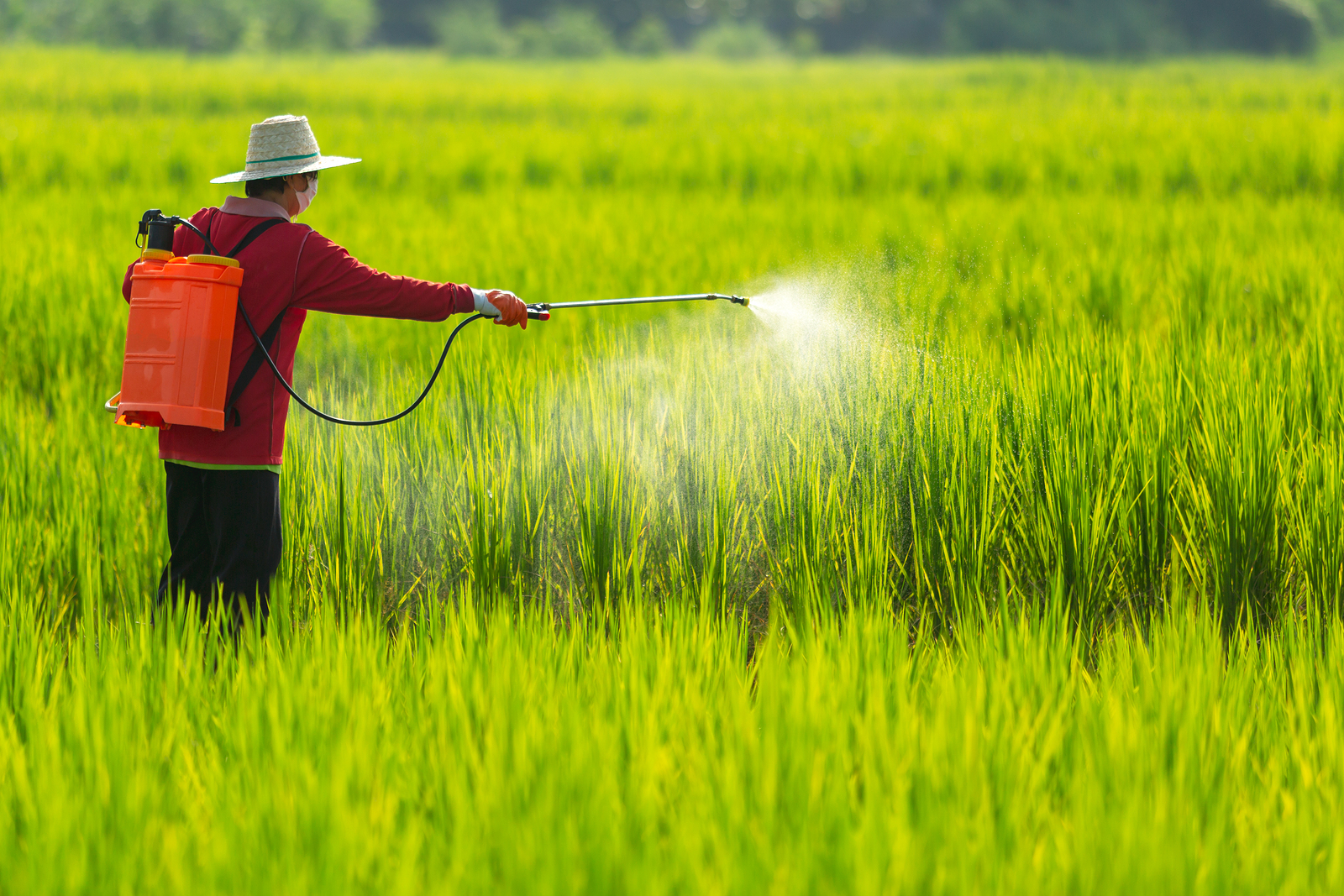Every time a new study comes out that shows a link between pesticides and health issues, I feel both validated and angry. It’s about time that we had scientific back up for what functional medicine practitioners have been saying for decades, but why has it taken so long?
Why is it that people are so quick to believe that man made chemicals are safe until proven otherwise, especially here in the US? Is it some misguided version of “innocent until proven guilty?” While that works well when talking about the impact on someone’s life if falsely accused of a crime, what are the ramifications of avoiding chemical use until we have all the facts? It likely has to do, like so many other things, with money.
Big companies spend countless dollars developing products that, according to their marketing, make life better. Pesticides protect crops – how could that be a bad thing, right? But it’s really not about the crops — it’s about the billions of dollars companies can make growing food bigger and faster – regardless of the impact on consumer health. Companies that manufacture pesticides sell their wares to industrial farmers who sell their wares to the general public. Everyone wins. Everyone, that is, except the general public, who are seeing sharp increases in disease and neurodevelopmental disorders such as autism.
I’m outraged at the thought that making money is more important than the well being of our general population. This outrage fuels my passion for spreading the word as far as I can. I want people to understand the risks they are exposed to – risks they can’t avoid even if they try! And I want to give people their best chance at reducing exposure so they can be as healthy as possible in this industrial driven world we live in.
So, how are pesticides and autism are connected, and what can you do to reduce your exposure? Let’s dive in.
What the Research Tells Us About Pesticides and Autism
I’ve been thinking about the impact of pesticides on health for years – so what spurred me to write about it now?
Last week, results from a new study were published in The BMJ. It’s the largest epidemiological study to date, and the researchers found that women who lived within 2,000 meters of an highly sprayed agricultural area in California while pregnant were 10 to 16 percent more likely to give birth to children who developed autism. If those children were exposed to pesticides during their first year of life, that risk jumped to 50 percent more likely.
These results can’t prove that pesticide exposure caused the autism, but they certainly reinforce the idea that there’s a connection. And with the health of our children at stake, I think that possibility needs to get the attention it deserves. With the right information, parents can take steps to protect their children as best they can.
One of the most frustrating things about this story is that no matter what you do, you probably can’t entirely avoid exposure to pesticides. The women in this study, for example, were exposed simply because of where they lived. They have no voice in what is used on the nearby crops – so their only recourse would be to move, which simply isn’t practical for a lot of people.
That’s why it’s so important to talk about this. People need to understand the risks these chemicals pose. Then, they need to speak up and ask for more regulations on what is sprayed into the air and on to the food we consume.
This study was just the latest that showed a link between pesticides and neurodevelopmental disorders. Authors of a review of studies in 2008 concluded that there is an association between pesticide exposure and neurodevelopmental impairments.
I think of it this way: if there’s even a hint that a chemical can cause health problems, we should exert caution in our use. Remember – people used to think lead paint was safe. Given what we’ve learned about how chemicals can impact brain development and health, I think minimizing our exposure to pesticides is the way to go.
Related article: Chemicals in Our Cosmetics: It’s Not Pretty!
What Other Impacts Can Pesticides Have on Our Health?
This new study doesn’t surprise me. It simply reinforces what I’ve believed for years: pesticides can have a detrimental effect on our health. The impact on brain development is just one of the many ways pesticides may impact our lives.
Negative health outcomes associated with pesticides are numerous. In some cases, high exposure either due to work, accidents, or intentional ingestion have lead to hospitalization and even death.
In addition to an autism connection, studies have shown that in children, exposure to high levels of pesticides were also associated with childhood cancer and ADHD.
Chemical pesticides have also been associated with skin issues, gastrointestinal problems, respiratory disease, cancer, and effects on the reproductive and endocrine systems. Pesticides can be stored in body fat, so the impacts can be felt long after pesticide exposure occurs.
Some pesticides, like DDT, were found to have such severe detrimental effects that they have been banned – but we have a long way to go! While we’re waiting for more effective regulations and more responsible use of pesticides in agriculture, there are some steps you can take to lower your risk of exposure.
How Can We Avoid Pesticide Exposure?
Pesticides are pervasive and it can be difficult to avoid exposure altogether, especially if you live in an agricultural area. Still, there are some simple steps you can take to minimize your exposure:
- Eat local, organic produce when possible. If the cost of organic produce is prohibitive, learn the Environmental Working Group’s “Dirty Dozen” and at the very least buy those organic.
- Be sure to wash fruits and vegetables well before consuming. Peel produce when possible, and take the top layer of leafy vegetables like cabbage or lettuce off before using.
- Use natural pest solutions in your home and garden. Outside, try introducing beneficial insects to eat nuisance pests, set traps, and hand weed and mulch to avoid chemical use. Indoors, uses traps (snap traps or sticky traps) and fly swatters. If fleas are the problem, vacuum and immediately dispose of the contents in an outdoor container.
- Support your body with supplementation. Because you can’t always control what you are exposed to, making sure you get all the nutrients, vitamins and minerals your body needs for top functioning is essential. But it’s hard to get all you need from the food you eat alone. I recommend that everyone take a high-quality multivitamin and a fish oil supplement daily. A healthy, well supported body can fend off toxins far better than one lacking in these essential nutrients!
Protect Yourself – and Your Children – from Pesticide Exposure Whenever Possible
Researchers are confirming what functional medicine practitioners have known for a long time.
Pesticides are something to be concerned about. The more science there is to back us up, and the more voices there are demanding change, the more likely it is that regulations will eventually be more stringent. Until then, the best thing you can do for yourself, and your family, is to avoid unnecessary exposure and promote good health with your nutrition and lifestyle choices.
Resources:
http://www.panna.org/resources/ddt-story
https://www.ncbi.nlm.nih.gov/pmc/articles/PMC4947579/
https://www.healthline.com/nutrition/pesticides-and-health







